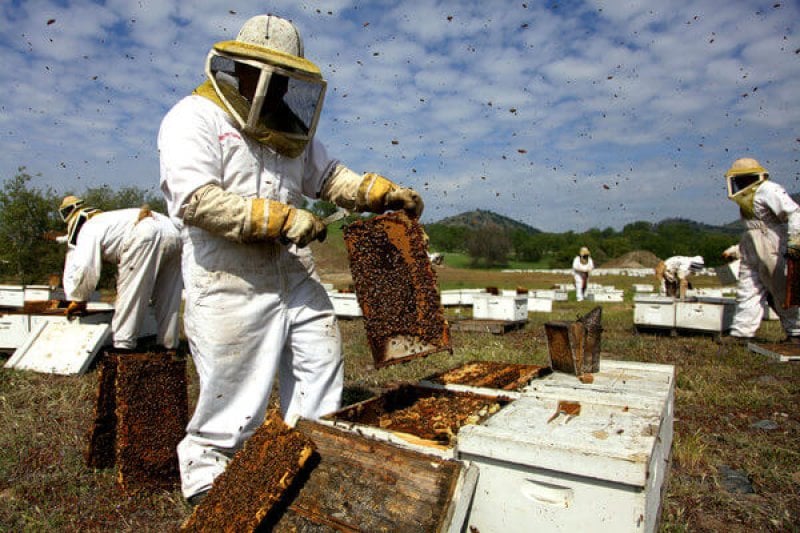A spike in bee deaths in 2004 and 2006, and continued reports since then of higher than expected overwinter die-offs, has sparked a spate of articles with doom-and-gloom themes using such charged words as “beepocalypse” and “beemageddon.” According to some media accounts, bees are dying in record numbers–a phenomenon often incorrectly referred to as Colony Collapse Disorder.
Because of the critical role of honeybees as one of Nature’s most important pollinators, many grains, nuts and fruits could conceivably be threatened. The search for causes led advocacy groups to initially single out GMOs, although there was no evidence to support those allegations. They’ve since coalesced around the view that pesticides are the main driver explaining declining bee health, fingering in particular a class of relatively new agricultural chemicals known as neonicotinoids, often called neonics. Last December, after a split vote, Europe voted in a two year moratorium on neonics, and advocacy groups are pressuring the US and Canada to follow suit.
Are bee hives in decline? What does the fast-emerging science say about what is likely impacting bee health? The Genetic Literacy Project’s Jon Entine, writing in Forbes, has taken a deep dive into the controversy and discovered that there’s a growing gap between the popular, activist and media narratives and the experiences of farmers and the latest state-of-the-art empirical evidence.
In reviewing the emerging research on challenges to bee health, University of Illinois entomologist May Berenbaum, chairwoman of a major National Academy of Sciences study on the loss of pollinators, said recently that she was “extremely dubious” that banning neonics, as many green activists are demanding, would have any positive effect. The key challenges to bee health going forward, entomologists say, are colony management issues, the blood-sucking varroa mite, the miticides beekeepers themselves use to control varroa infestations and various viruses.
“If the Environmental Protection Agency moves to restrict neonicotinoid pesticides because of fears that they are causing bee deaths, it will happen in spite of the mounting evidence rather than because of it,” Entine writes.
Read full original article: Bee Deaths Reversal: As Evidence Points Away From Neonics As Driver, Pressure Builds To Rethink Ban
Additional Resources:
- Science Collapse Disorder – The Real Story Behind Neonics And Mass Bee Deaths, Forbes
- Royal Pains: Why Queen Honeybees Are Living Shorter, Less Productive Lives, Scientific American
- While Global Bee Colonies Struggle, European Politicians Seem Determined To Kill Them Off, Forbes
































